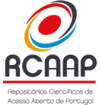About the Journal
Aims & Scope
The H2D Digital Humanities Journal is a diamond open-access, interdisciplinary publication dedicated to advancing research and dialogue in the field of Digital Humanities. As the digital age reshapes how we study, interpret, and engage with the humanities, our journal serves as a platform for academic discourse, innovative research, and cross-disciplinary collaboration.
Our goal is to bridge the gap between humanities scholarship and technological advancements, addressing contemporary societal challenges in alignment with the Sustainable Development Goals (SDGs) of the 2030 Agenda and the evolving demands of the job market.
Since 2024, H2D has expanded its reach as an interinstitutional journal, bringing together a diverse editorial team from Brazil and Angola, with primary coordination based in Portugal. This international collaboration underscores our commitment to promoting a global dialogue in Digital Humanities, with a particular focus on perspectives from the Lusophone world.
We invite researchers, educators, and professionals to share insights into the impact of digital tools and methodologies on the humanities. In this spirit of transdisciplinary exchange, we welcome scholarly articles, reports on pedagogical projects, analyses of technological tools and resources, and case studies on real-world applications—all contributing to the broader understanding of the humanities in the digital era.
We encourage submissions on, but not limited to, the following topics:
- Author Profiling
- Corpora Comparison
- Data Analysis & Text Statistics
- Data Repositories & Open Access
- Data Visualization & Interactive Dashboards
- Digital Archives & Libraries
- Digital Content Creation (Infographics, Podcasts, Videos)
- Digital Edition & Textual Heritage
- Entity Recognition
- Geolocation & Spatial Humanities
- Human-Centered Design
- Language Corpora
- Large Language Models (LLM) & Large Multimodal Models (LMM)
- Multimodal Communication & Social Media
- Natural Language Processing (NLP)
- Opinion Mining & Sentiment Analysis
- Open Access & Open Science
- Project Management in Digital Humanities
- Science Communication
- Terminology Extraction
- Text Cleaning, Parsing, and Simplification Techniques
- Text Summarization
- Topic Modeling
- Web Scraping Techniques
Journal Sections
The H2D Journal includes the following sections:
- Articles: long articles (up to 6,000 words excluding references) and short articles (up to 2,000 words excluding references).
- H2D Live: Publication in audiovisual format that will be available in the journal's channel (H2D Live - short talks).
- Miscellaneous: interviews, reviews and other mono or multimodal proposals.
Submission Model
H2D welcomes submissions on a continuous basis. Authors may submit their articles at any time, through the following link: https://revistas.uminho.pt/index.php/h2d/login, and must comply with the Journal guidelines.
Periodicity e Línguas
Between 2019 and 2024, the journal was published an annual, one issue, volume, with special themed issues released occasionally. Beginning in 2025, it transitioned to a continuous publication model, with one issue per year and periodic thematic volumes. Submissions are accepted in Portuguese, Spanish, French, Italian, or English.
About the publisher
ISSN
e-ISSN: 2184-562X
Peer Review Policy
The journal adopts an open peer review model, meaning that authors know who their reviewers are and vice versa. This model enhances transparency and accountability among reviewers and allows them to receive recognition for their work, which can be particularly valuable for early-career researchers.
After submission, articles undergo a preliminary analysis conducted by the Editorial Board and the Screening Team (desk review). The Editorial Board may reject submissions that do not align with the journal’s scope without forwarding them for review. Articles that pass this initial stage are then evaluated by two external reviewers. In cases where the reviewers' opinions differ, the final editorial decision will be made by the editor, based on the available opinions and the journal's criteria. An additional evaluation may be requested to support this decision.
To ensure an independent evaluation process, we strive to ensure that reviewers are not affiliated with the same institution or research group as the authors. The selection of reviewers is based on their expertise in the subject area and their ability to provide an impartial and constructive assessment. We take special care to identify potential conflicts of interest between authors and reviewers, and if any are found, alternative reviewers are assigned.
The review process is conducted in two ways:
- Textual comments: Reviewers offer feedback, critiques, and assessments directly within the text, allowing for a constructive and in-depth discussion of the content.
- Peer review form: Submissions are evaluated based on criteria such as originality, relevance, coherence between objectives and execution, argumentative and theoretical consistency, methodological appropriateness, up-to-date references, and clarity of presentation.
Based on the evaluation, the reviewer may recommend one of five outcomes: acceptance without revisions, acceptance with minor changes, acceptance with moderate revisions, rejection with the possibility of resubmission, or final rejection. In cases where the reviewers’ reports diverge, the final editorial decision will be made by the editor, based on the available reviews and the journal’s criteria. An additional evaluation may be requested to support this decision.
The estimated timeframe for the evaluation and publication process ranges from six months to one year, depending on the complexity of the reviews and suggested revisions.
Databases, Directories, and Indexing
H2D is registered in various academic platforms to ensure broad visibility and accessibility:
- Directories:
- RCCAP (Repositório Científico de Acesso Aberto de Portugal) https://www.rcaap.pt/repositoryInfo.jsp?locale=pt&id=h2d
- Databases:
- B-on
- Dialnet Plus: https://dialnet.unirioja.es/servlet/revista?codigo=28490
- Indexes:
- Google Scholar
- Dialnet Plus: https://dialnet.unirioja.es/servlet/revista?codigo=28490
Digital Identifiers
H2D utilizes digital identifiers such as DOI and ORCID to enhance the visibility and credibility of published research.
- DOI (Digital Object Identifier) is a unique alphanumeric code assigned to each article, ensuring its permanent accessibility and easy citation, regardless of changes in its online location.
- ORCID (Open Researcher and Contributor ID) is a unique identifier for researchers, distinguishing them from others with similar names and linking their scholarly contributions across different platforms.
Open Access Policy
H2D Digital Humanities Journal is an open-access journal that provides immediate, free, and unrestricted access to its published content. All articles are made available under a Creative Commons Attribution License CC BY, allowing users to read, download, copy, distribute, print, search, or link to the full texts of the articles without asking for prior permission from the publisher or author, provided proper attribution is given. All content is published with the aim of promoting the free exchange of knowledge and advancing scientific research. The journal follows the principles of open access as defined by the Budapest Open Access Initiative (BOAI), ensuring that research is widely accessible and reusable. There are no embargo periods, and all articles are published with persistent DOIs (Digital Object Identifiers) to ensure long-term discoverability.
License and Copyright Terms
The authors retain copyright and grant Revista H2D the right of first publication. The works are simultaneously licensed under the Creative Commons Attribution License CC BY, allowing copying, distribution, adaptation, and commercial use of the content, provided that proper attribution is given to the author and the original publication in the journal.
Self-Archiving Policy
Authors are allowed to deposit all versions of their work—the submitted manuscript (pre-prints), the accepted version, and the final published version in Revista H2D—in institutional repositories, academic sharing platforms such as ResearchGate and personal websites.
Digital Preservation Policy
This journal is digitally preserved through the Public Knowledge Project (PKP PN) service.
Publication Fees
H2D does not charge any fees, including article processing charges (APC), submission fees, publication fees, peer review fees, language revision fees, online availability, or article downloads. All articles are published free of charge, ensuring accessibility and promoting the dissemination of knowledge without financial barriers for authors.
Privacy Statement
Personal information (such as names and addresses) is used exclusively for services provided by the Journal. They are not made available to third parties nor used for other purposes.
Plagiarism Detection Policy
Editors are committed to ensuring originality. Suspected cases are investigated, and the journal uses iThenticate to support this process.
Code of Ethics
H2D adheres to the Code of Conduct and Best Practice Guidelines for Journal Editors of the Committee on Publication Ethics (COPE) and the University of Minho Code of Ethical Conduct. Our ethical principles are based on, Professional, scientific, and academic responsibility, Integrity in research and publication and Respect for diversity, dignity, and human rights.
Editorial Responsibilities
- Editors ensure research meets high scientific and ethical standards, selecting manuscripts based on originality, significance, and clarity.
- Editors maintain transparency in the review process, and address plagiarism and misconduct per COPE guidelines. They publish necessary corrections or retractions and remain independent of external influences.
- Editorial decisions are free from discrimination based on personal attributes, and offensive or discriminatory content is not accepted.
Author Responsibilities
- Authors must submit work that aligns with the journal’s scope, accurately credit contributors, disclose conflicts of interest, and be prepared to share data. Authorship reflects substantial contributions to research design, execution, and writing. Errors must be reported for correction or retraction.
- Submissions must be original, unpublished, and not under review elsewhere. Data must be accurately presented, sources properly cited, and plagiarism avoided. Informed consent is required for human research, ensuring confidentiality.
- Authors must use inclusive, non-discriminatory language and protect the privacy and confidentiality of research subjects.
Reviewer Responsibilities
- Reviewers must provide fair, objective, and timely evaluations with constructive feedback to improve manuscript quality.
- Reviewers must disclose conflicts of interest, and report ethical concerns like plagiarism or data manipulation.
- Reviews must be unbiased, professional, and free from discrimination, using respectful and objective language.
Policy on the Use of Artificial Intelligence
H2D recognizes that Artificial Intelligence tools—particularly Generative AI—are part of the contemporary ecosystem of scientific production and the various tasks it entails (research, writing, proofreading and editing). The use of these tools must follow principles of scientific integrity, without manipulation, or falsification of data, and with authors, reviewers, and editors fully responsible for the content. Our AI usage policy follows COPE guidelines.
Guidelines for Authors
AI tools cannot be authors or co-authors. Only individuals who meet authorship criteria (intellectual contribution, final approval, and responsibility) may be listed as authors or co-authors. They are fully responsible for the scientific content, the originality and integrity of the data, and any ethical violations associated with the misuse of AI.
AI may be used in a limited manner, for example, to improve language (clarity, grammar, translation), preliminary organization of references, or support in synthesizing existing literature (with human verification).
It is not permitted to use AI to generate substantial parts of the article. If an AI tool is used for data collection and analysis, graph production, or other processes related to article production, authors must be transparent and declare its use before the References section, under “AI Usage Declaration.”
Example:
AI Usage Declaration
During the preparation of this article, the author(s) used [tool/model name, version or date] for [specific function]. All content was critically reviewed and is the full responsibility of the author(s).”
Guidelines for Reviewers
It is not permitted to submit, fully or partially, articles submitted to H2D to AI tools, as this would violate confidentiality, copyright, and data protection. Reviewers may use AI only to improve the clarity or translation of their reports, provided that no excerpt of the article is entered into the tool. AI cannot be used to scientifically evaluate articles, decide on acceptance or rejection, or replace human editorial judgment.
Guidelines for Editors
The editorial team may use AI for administrative tasks, such as preparing scientific outreach materials. AI cannot be used to scientifically evaluate articles, decide on acceptance or rejection, or replace human editorial judgment.
Transparency
The use of AI does not exempt authors, reviewers, or editors from ethical responsibility. H2D may request additional clarification, corrections, reject, or retract articles in cases of misuse or omissions. Cases of inappropriate conduct will follow COPE recommendations.
Recommended Best Practices
- Full transparency: always declare AI usage.
- Human validation: never accept AI results without critical verification.
- Responsible use: AI as support, never as a substitute for scientific work.
- Data protection: do not expose articles or reviews to external platforms.





